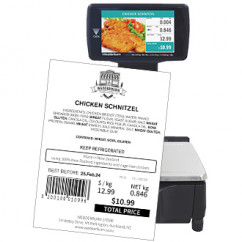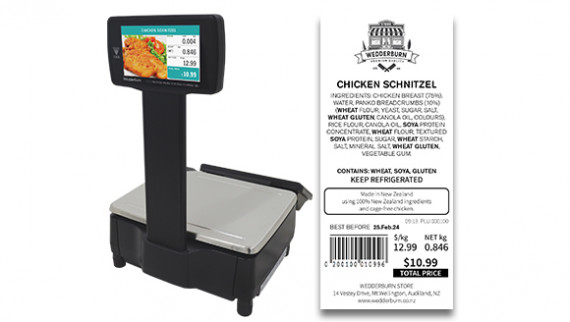Allergen Labelling Requirements
Plain English Allergen Labelling (PEAL) Requirements. 
Are you PEAL Compliant? Businesses had until 25 February 2024 to comply with the new food labelling code. Wedderburn are here to help you get over the compliance line.
If you list ingredients on food labels, your labels may need updating to comply with the new Plain English Allergen Labelling (PEAL) requirements as introduced by Food Standards Australia New Zealand (FSANZ).
Dates for business compliance are now just around the corner - are you ready?
The following article is intended to help readers understand what is required, where to go for additional information and how Wedderburn can help you become PEAL compliant.
What is PEAL all about?
New requirements for labelling allergens in food were introduced by Food Standards Australia New Zealand (FSANZ) in February 2021.
It's important for people with food allergies or food intolerances to understand exactly what is in their food. However some foods and ingredients can include allergens that aren't necessarily expected or obvious and historically there has been an absence of consistency in information provided and terminology used.
The new Code outlines allergens to be declared as well as when warning and advisory statements are required. It defines terminology to be used, font size and positioning of important information making compliance reasonably straight forward.
It's intended that the new PEAL rules will make it easier for consumers to identify what allergens are in food empowering them to make safe choices and potentially boosting your brand reputation as a chosen supplier.
How do you become PEAL compliant?
Wedderburn have a range of solutions to help you become PEAL compliant; from custom printed labels to smart equipment capable of automatically bolding the allergens printed on your labels.
- Fully customised labels produced by Wedderburn in New Zealand
- Custom or blank labels ready for over-printing variable information on demand
- Thermal Label Printers with software capable of over-printing labels in a PEAL compliant manner
- Weigh Labelling Scales & Atria Management Software for managing and printing PEAL compliant ingredients lists and statements
We have teams throughout New Zealand ready to help you navigate your equipment and label choices to become PEAL compliant in time.

Smart Solutions
✓ Custom product labels
✓ Labels ready for over-printing
✓ Thermal Label Printers - auto bold allergen printing
✓ Weigh Labelling Scales - bold allergen printing
CONTACT US TODAY
How will the new PEAL rules impact your food labels?
PEAL requirements include that allergen information is to be declared;
- in a specific format and location on food labels, and
- using simple, plain English terms in bold font, and
- using the required allergen names as stipulate in the Code, and
- with a 'contains' statement summarising just the allergens
Not all food and beverage requires labels or ingredients lists. For further information please consult MPI - we've include helpful resource links at the bottom of this article.
What food allergens need to be declared on the label?
If food or drink contains a common allergen or ingredient sourced from it, the Australia New Zealand Food Standards Code (the Code) requires businesses to declare those allergens on the labels using the required allergen name. General terms such as 'tree nuts', 'shellfish' and 'dairy' will no longer be adequate.
Common allergens include; peanuts, almonds, Brazil nuts, cashews, hazelnuts, macadamias, pecans, pine nuts, pistachios, walnuts, crustacea, molluscs, fish, milk, egg, gluten (that is found in wheat, rye, barley, oats, spelt and triticale), wheat, soy, sesame, lupin and sulphites.

When was the deadline for PEAL compliance?
Businesses had until 25 February 2024 to comply with the new food labelling code. Any food packaged and labelled before this date, under the existing rules, may be sold for a further two years.
Additional Resources
Helpful, easy-to-follow guidelines to help all businesses understand their obligations under the new PEAL rules are published on MPI's website and you may access them for free. The 'How to Label Guide' includes a useful table of allergens and specific wording to be used.
Take The Next Step Toward PEAL Compliance
Contact your local Wedderburn team for a free assessment on the best solution for your business.
